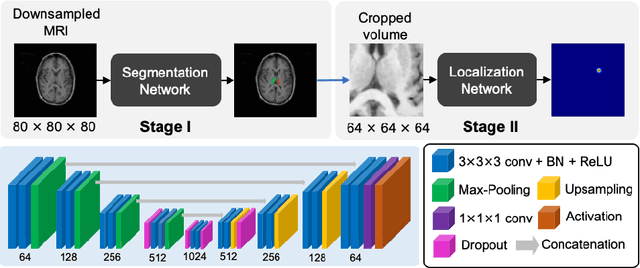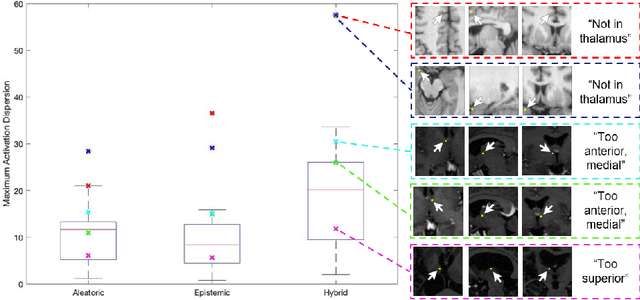Uncertainty Estimation in Medical Image Localization: Towards Robust Anterior Thalamus Targeting for Deep Brain Stimulation
Paper and Code
Nov 03, 2020


Atlas-based methods are the standard approaches for automatic targeting of the Anterior Nucleus of the Thalamus (ANT) for Deep Brain Stimulation (DBS), but these are known to lack robustness when anatomic differences between atlases and subjects are large. To improve the localization robustness, we propose a novel two-stage deep learning (DL) framework, where the first stage identifies and crops the thalamus regions from the whole brain MRI and the second stage performs per-voxel regression on the cropped volume to localize the targets at the finest resolution scale. To address the issue of data scarcity, we train the models with the pseudo labels which are created based on the available labeled data using multi-atlas registration. To assess the performance of the proposed framework, we validate two sampling-based uncertainty estimation techniques namely Monte Carlo Dropout (MCDO) and Test-Time Augmentation (TTA) on the second-stage localization network. Moreover, we propose a novel uncertainty estimation metric called maximum activation dispersion (MAD) to estimate the image-wise uncertainty for localization tasks. Our results show that the proposed method achieved more robust localization performance than the traditional multi-atlas method and TTA could further improve the robustness. Moreover, the epistemic and hybrid uncertainty estimated by MAD could be used to detect the unreliable localizations and the magnitude of the uncertainty estimated by MAD could reflect the degree of unreliability for the rejected predictions.
 Add to Chrome
Add to Chrome Add to Firefox
Add to Firefox Add to Edge
Add to Edge